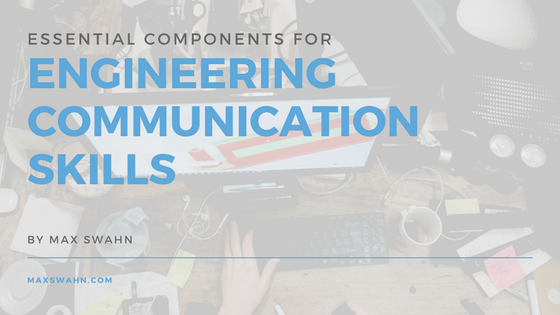While it’s easy for people to assume that most engineers are holed up working on research or their next major build, in reality, engineering requires a lot of communication skills as well. I previously touched on why communication is essential to a career in engineering. Now I’m going to discuss the ‘what’ part of communication.
Know Your Audience
There are always varied levels of understanding. In some situations, you will be speaking to your engineering peers who understand the high-level jargon of the field. Other times you will be working with coworkers from other departments who aren’t familiar with the same concepts you are. Consider your audience before planning a speech or information session. As The Engineer says, “If there’s a risk they’re unfamiliar with technical details and jargon then keep it simple at first – you can always add more detail in later. And if you do mention terms or concepts they may not have encountered before then make sure you explain them in clear language.”
Practice Makes Perfect
If you aren’t comfortable with your current level of communication skills, practice. The more often you use and hone those skills, the more comfortable and confident you will be. Consider taking advantage of a program like Toastmasters International where you can practice in a private, controlled environment. Remember nobody’s perfect and you’re not alone in your quest for better communication.
The Written Word
Between emails, briefs, and proposals, written communication is equally as important as oral communication if not more in the workplace. You use it every day for nearly every task. Use proper grammar. Practice the same understanding for your audience when you write as you do when you speak. Don’t over complicate things and be sure you are direct. As Mitch Maimain says, “The engineer needs to step into the mindset of the audience/readers and write in a form that gets to the point quickly and speaks in a language that is readily understood by the audience.”
When All Else Fails – Enthusiasm
Enthusiasm is contagious. While it’s important to practice proper communication and make a clear argument, passion is often the clearest message. As Mitch Maimain describes, “Engineers do not necessarily need to become card-carrying sales people, however, they do need to be able to sell their ideas.” If you can clearly display your argument and show people how excited you feel about it, the more likely people are to respond to it.
In summary, hone and apply skilled communication on a daily basis. If you aren’t confident, practice. If you don’t appear to believe what you say, neither will your audience. Adjusting and implementing these approaches prove to be pivotal to career steps and a positive and effective workplace environment.

